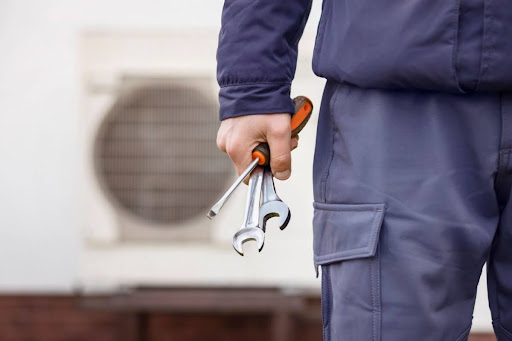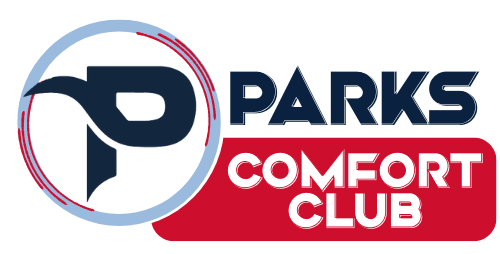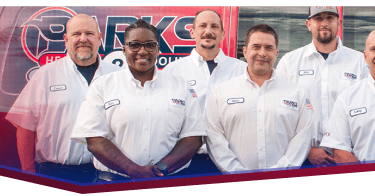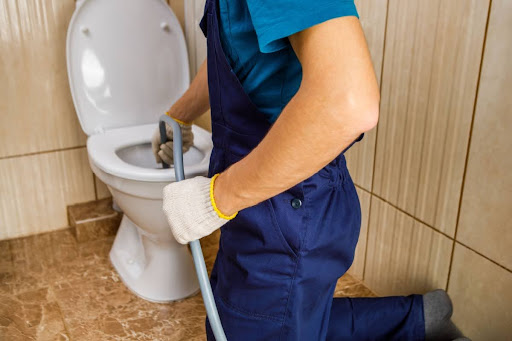Spring HVAC Maintenance: Essential Steps for the Season

Spring is here, and the most important thing you can do for your home this season is get maintenance on your HVAC system. Why? Because it helps prevent big problems down the road. Without proper care, you might face unexpected breakdowns, poor cooling performance, or even expensive repairs when summer heat arrives.
Spring maintenance should involve a call to your local HVAC company for a professional check-up. To get in touch with one of our friendly technicians at Parks, just dial 704-596-8200 today! But there are also several things you can do on your own to help keep your systems running smoothly.
Follow these tips, and you’ll be thanking yourself for a long-lasting and powerful HVAC system for years to come!
Replace Those Air Filters Regularly
Your air filters work overtime trapping dust, dirt, and allergens from circulating through your home. When filters get clogged, your heating and cooling system has to work harder, using more electricity and reducing efficiency. During spring, pollen and other air pollution can quickly clog filters. Plan to check your filters monthly and replace them every 1-3 months, depending on your home’s conditions.
If you have pets or allergy sufferers in your home, you’ll want to change them more frequently. Clean filters improve your indoor air quality and help your equipment last longer — a simple task that pays off big time.
Clean Around Your Outdoor Condenser Unit
Over the winter, your outdoor condenser unit probably collected leaves, twigs, and debris. This outdoor component of your air conditioning system needs proper airflow to work correctly.
Take some time to clear away any vegetation, leaves, or debris within two feet of the unit. Gently wash the exterior with a garden hose (never a pressure washer) to remove built-up dirt. Trim back any bushes or plants that might block airflow. When your condenser can breathe freely, your cooling system runs more efficiently and uses less electricity.
Check and Program Your Thermostat Settings
Spring is the perfect time to update your thermostat programming. As the weather transitions, you’ll want temperature settings that are different from those in winter. If you don’t have a programmable or smart thermostat yet, consider upgrading, as it’s a smart investment that pays for itself through improved efficiency.
Program higher temperatures when nobody’s home and comfortable settings when you return. Each degree you raise your thermostat in summer can save you about 2% on cooling costs.
Take a moment to check that all the sensors are working properly and that the temperature readings match the actual feel of your home. This small adjustment helps your system run more efficiently and saves money on your utility bills.
Inspect Your Ductwork for Leaks or Damage
Your ducts distribute heated and cooled air throughout your home, but leaky ducts can waste up to 30% of your system’s efficiency. Walk through your home and visually inspect any exposed ductwork in attics, basements, or crawlspaces. Look for obvious separation at seams, holes, or collapsed sections. Feel for air leaking out when your system runs.
Dusty areas around duct connections often indicate a leak. Simple fixes with metal-backed tape (not regular duct tape) can seal small leaks and improve airflow. For larger issues, you might need professional help.
Clear Your Drainage Systems
Your air conditioning system removes humidity from your home, creating condensation that needs to drain away properly. Locate your condensate drain line (usually a PVC pipe near your indoor unit) and check that it’s draining correctly. Pour a cup of vinegar down the drain to kill any mold or algae growing inside.
A clogged drain can cause water damage, increase humidity in your home, and even trigger system shutdowns on newer models. Some systems have a secondary drain pan that should be checked and cleaned too. This simple maintenance step prevents moisture problems that could lead to mold growth or even flooding around your HVAC equipment.
Listen for Unusual Noises
As you start up your cooling system for the first time in spring, pay attention to any strange sounds. Banging, scraping, or high-pitched noises aren’t normal and often signal a problem. Rattling might indicate loose parts, while grinding could mean motor bearings need lubrication. Whistling sounds often point to air leaks or airflow restrictions.
Don’t ignore these warning signs, as they rarely get better on their own. Making a note of unusual sounds and addressing them early can prevent minor issues from becoming major repairs. Your HVAC system should operate relatively quietly, so any persistent noise deserves attention from a technician.
Schedule Professional Spring HVAC Maintenance
While DIY tasks are important, nothing replaces a thorough inspection by an HVAC technician. Professional AC maintenance and tune-ups typically includes:
- Checking refrigerant levels
- Testing safety controls
- Inspecting the heat exchanger for cracks (which could lead to carbon monoxide leaks)
- Cleaning components
- Lubricating moving parts
- Evaluating overall system performance
- Checking electrical connections
- Testing the ignition system
- Making sure your cooling system is ready for summer demands
Spring maintenance appointments are best scheduled before the weather gets hot, as you’ll beat the rush of emergency calls that come with the first heatwave.
Check for Gas or Carbon Monoxide Issues
If your home uses gas for heating, spring is a good time to verify your carbon monoxide detector is working properly. Replace the batteries and test the alarm. Check around your furnace for any signs of gas odor or sooty residue that might indicate improper combustion. Even though you’re transitioning to cooling season, these safety checks remain important year-round.
A faulty heat exchanger can create dangerous gas leaks or carbon monoxide issues. Your family’s health and safety depend on proper ventilation and functioning safety equipment. If you notice headaches, dizziness, or nausea when your system runs, exit your home immediately and call for professional help.
Call Us for Your Spring HVAC Maintenance Today!
Have you gotten your spring maintenance done yet? Following these tips will help keep your system running smoothly, but nothing beats professional care. If you’re in the Charlotte metro area, give us a call at 704-596-8200 for complete HVAC maintenance from our experienced team!
Contact Us Today


Become a Parks Comfort Club Member Today!
Sign Up for the Parks Comford Club Plan & Receive Guaranteed Service Day or Night.
- Biannual high-performance system checks for HVAC
- Complimentary plumbing video inspection
- Lowered energy usage & lower monthly bills
- Unparalleled protection & peace of mind
- Member-exclusive service discounts & perks







